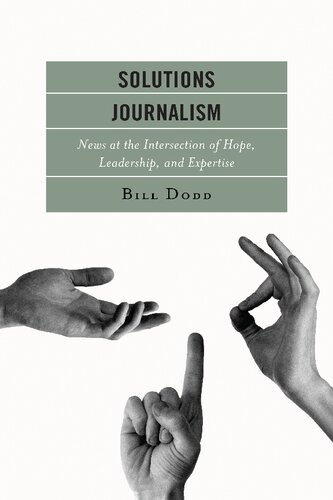

Most ebook files are in PDF format, so you can easily read them using various software such as Foxit Reader or directly on the Google Chrome browser.
Some ebook files are released by publishers in other formats such as .awz, .mobi, .epub, .fb2, etc. You may need to install specific software to read these formats on mobile/PC, such as Calibre.
Please read the tutorial at this link: https://ebookbell.com/faq
We offer FREE conversion to the popular formats you request; however, this may take some time. Therefore, right after payment, please email us, and we will try to provide the service as quickly as possible.
For some exceptional file formats or broken links (if any), please refrain from opening any disputes. Instead, email us first, and we will try to assist within a maximum of 6 hours.
EbookBell Team

4.0
6 reviewsAs audiences avoid negative news and public risk perceptions fracture across polarized media ecologies, journalists are being called upon to tell engaging and optimistic stories about the future. Consequently, solutions journalism has moved from the margins to the global mainstream, resulting in a plurality of new solutions-focused practices.Solutions Journalism: News at the Intersection of Hope, Leadership, and Expertiseexplores the professional dynamics and tensions concerning solutions journalism, clarifies these related practices and, in so doing, provides scholars and journalists with a nuanced appreciation of the opportunities and liabilities of reporting solutions. Drawing upon a year-long study of journalism in Tasmania, Bill Dodd develops a tripartite theory of solutions journalism at the intersection of three core concepts: hope, leadership, and expertise. In Australia’s lagging southernmost province, where development propositions have sparked global protest movements, ‘New Tasmania’ represented a newly optimistic spirit of bipartisanship. Yet, in this book, a close reading of solutions-focused discourse reveals deeper asymmetries regarding whose voices are routinely privileged in framing the future. On this basis, the book argues for a solutions journalism founded on a nuanced understanding of hope and a plurality of community leaders and practical expertise.